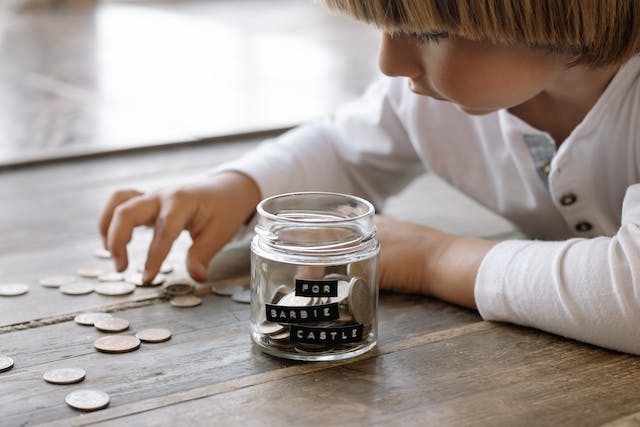Our Insights
Welcome to our blog, dedicated to Finance Education for Children. Here, we’ve curated a wealth of resources to empower parents and caregivers with valuable insights and tips on teaching kids about money. Our articles and blog posts are designed to make financial education engaging and accessible for children ages three years up to 18. Whether you’re looking for hands-on exercises, creative activities, or age-appropriate strategies to instill sound financial habits, you’ll find a treasure trove of information and guidance here. Join us on this journey to equip your children with essential life skills for a financially savvy future.
Financial Education for Children By Age
Financial Education for Children: All Resources
-
Nine Ultimate Financial Literacy Games for Kids by Age
Let’s face it: learning about money matters is not an exciting activity for a child. No wonder most kids are poorly equipped and unsure of their personal finance capabilities. This is evident from the fact that more than 66% of parents are not highly confident in their child’s financial literacy skills. Therefore, we must provide…
-
RRSP for Children: The Ultimate Guide for Parents
Registered Retirement Savings Plans (RRSPs) are tax-advantaged savings and investment vehicles designed to help individuals save for retirement. RRSP accounts for children allows them to save for their future while learning critical financial literacy lessons. In addition to teaching them about savings, RRSPs can also build a foundational block towards your child’s first home or…
-
Debit and Credit Card for Children: The Ultimate Parent’s Guide
Debit and credit cards for children are crucial components of a child’s financial educational journey. Despite its significance, less than 1 in 5 children aged 8 to 14 possess a credit card. In this comprehensive guide, we’ll explore the concepts of debit and credit cards for children, evaluate their pros and cons, determine the ideal…
-
Teaching Children about Money: The Ultimate Guide for Parents
Teaching children about money and helping them have a positive relationship with finance is one of the most essential life skills they will need to thrive in the future. As a parent myself, I consider this to be as important as learning how to ride a bike, drive or swim. Research has shown that the…
-
When Should You Open a Bank Account for Your Child?
Technically, you can open one as early as the day after their birth. While each child may be different, children typically start developing a basic understanding of money between the ages of 3 and 6. This makes it an ideal age to start with a savings account. While your child may not fully comprehend the…
-
Fun Budgeting Activities for Children by Age Group
Teaching budgeting to children doesn’t have to be boring! Use fun, hands-on activities to impart budgeting skills to the next generation.
-
Can I open an investment account for my child in Canada?
Yes, you can! In fact, as your children grow through teenage and early adulthood, having an investment account can be one of the most powerful ways to attain wealth. In addition to utilizing the power of compounding, learning and practicing investing early can lay a powerful foundation for their financial prosperity.
-
Does Your Minor Child Need to File Tax Returns? 7 Strong Reasons to Do So!
Minors or teens with a part-time job, a small side hustle, or a booming business may need to file a tax return. As a matter of fact, it may benefit them to file tax returns in the long run. Let us look at situations when minors need to file a tax return and the advantages…
-
Can I Open a TFSA Account for My Child?
The minimum legal age for opening up a TFSA in Alberta, Manitoba, Ontario, Prince Edward Island, Quebec and Saskatchewan is 18 years or older. It is 19 for all other provinces and territories. Irrespective of the province, the contribution room starts accumulating from the age of 18 years.
-
Diwali:5 Powerful Financial Literacy Lessons for Your Family and Children
Diwali provides us with some powerful financial literacy lessons. From the act of cleaning up our financial houses to keeping track of our expenses, the two concepts are strongly intertwined. Respecting our wealth, along with a drive to continuously enhance our financial literacy knowledge is critical. Finally, it is as much about small acts of…
-
Credit Card for Children: A Powerful Financial Literacy Tool
Using credit card for children as a financial tool can be a powerful ally in our financial literacy journey for kids. These can be used to teach children about revolving debt, responsible spending behaviour, interest rates and credit scores. These are critical lessons towards their financial prosperity.
-
How to Teach The Value of Money to Teenagers
As children grow into teenage years, it becomes crucial to instill a strong understanding of the value of money in them. Creating money scarcity is one of the most powerful tools to teach the value of money to teenagers. Encouraging them to earn money and budget according to their needs and wants while creating actionable…












